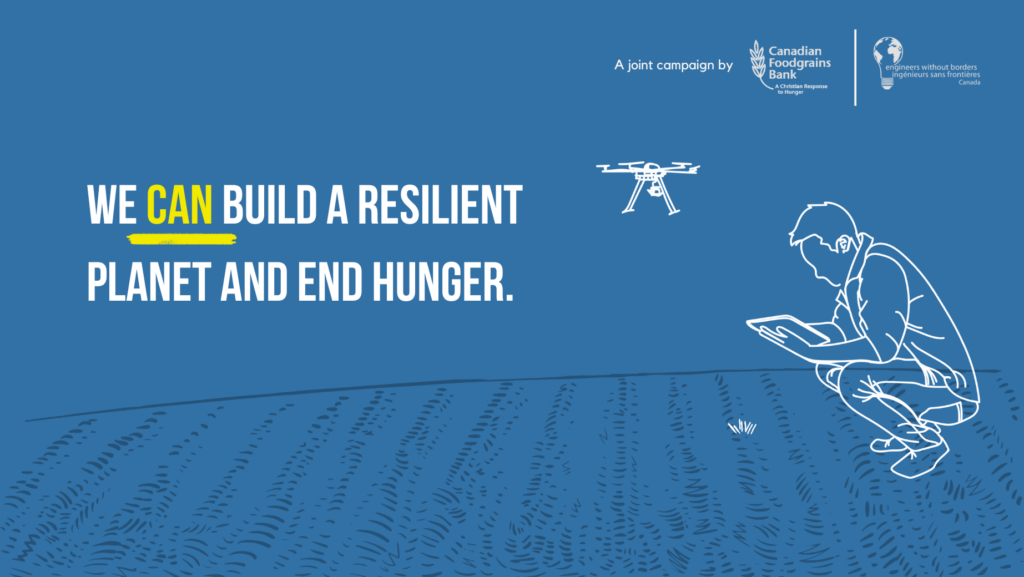
The Federal Budget 2024 Release & Advocating for Change with Canadian Foodgrains Bank
This afternoon, the Canadian government released its long awaited Federal Budget for 2024.
In it, we find a focus on new housing funding, along with investment in indigenous services, disability, and student supports.
AI infrastructure and access is getting a $2 billion lift, $200 million of which is earmarked to support adoption in sectors such as healthcare, agriculture, manufacturing, and clean technology over five years. $50 million over four years is set to go to worker supports for those impacted by AI, including new skills training, and additional funding will be going to bolstering safety measures.
“We have a natural edge: we have abundant and clean electricity; we have skilled and experienced engineers; we have the cold climate needed to help cool supercomputers; and we are physically close to the world’s largest market which has vast data processing needs.”
– Chrystia Freeland, Deputy Prime Minister and Minister of Finance
While this is a welcomed step forward, what we don’t see is any adequate investment in global climate funding, undermining Canada’s strategic edge in global clean energy markets.
“Considering Canada’s leadership position in international climate finance negotiations, we were disappointed to see the budget’s failure to focus on the climate investments necessary to support the most vulnerable and marginalised. While it was positive to see the push for AI access and infrastructure, without more effectively leveraging Canada’s powerful pool of technical knowledge to develop impactful tech for good, we are undermining any chance of meeting critical climate goals.”
– Shivani Patel, COO, EWB Canada
Campaigning for Better

Earlier this year, and with thousands of postcards sent from passionate advocates from coast to coast to Minister Hussen and Minister Guilbeault, EWB and Canadian Foodgrains Bank joined forces to bring attention to the important ways science and engineering build resiliency to climate change in food systems, and ultimately, improve people’s lives and end hunger.
Until 2014, hunger had been declining for a decade, but climate change, conflict, and economic downturns have halted this trend. Between 691 and 783 million people are estimated to have experienced regular hunger in 2022. The World Bank estimates that climate change could force an additional 100 million people into extreme poverty and hunger by 2030, and unchecked climate change could cost us $178 trillion from 2021 – 2070.
The world experienced USD$2.8 trillion in loss and damage from climate change from 2000 to 2019, equating to USD$16 million per hour. In the next 30 years, food supply and food security will be devastatingly threatened if insufficient action is taken to address climate change.
As systems thinkers, we understand that issues are not one-dimensional; quick, band-aid solutions to one problem often increase the risk of other problems. Food security is not merely about producing enough food; it encompasses a complex web of factors, including accessibility, affordability, nutritional value, and stability of supply. Resilient food systems go beyond immediate needs, focusing on the ability to adapt and recover in the face of shocks or stresses.
Canada has made important commitments to address climate change’s impact on developing countries, including a doubling of its international climate finance, from $2.65 billion (2015−2021) to $5.3 billion (2021−2026). Canada has also committed to increasing its aid budget each year to 2030.
We want to ensure that Canada delivers on these commitments, while making additional investments in Loss and Damage initiatives and prioritizing resilient food systems in the Global South to enable those most vulnerable to climate change to have sustainable livelihoods.
That is why we advocated to Canada’s Minister of International Development, Minister Hussen, and Minister Guilbeault, our Minister of Environment and Climate Change, and Canada’s passionate advocates responded!
Read more about the Federal Budget
See what we and our civil society partners have to say about it
Read more about our joint campaign
A little bit about EWB Canada’s Advocacy:
In our increasingly tech-driven world, many remain excluded from its benefits. At Engineers Without Borders Canada, we recognize that technology alone can’t drive real and lasting change. True progress requires a holistic approach, considering cultural, behavioral, and political factors. We value insights from those who understand these issues, and believe that they are key to effective solutions. We share the tech community’s vision: technology should uplift people and the planet. With this ethos, we leverage engineering and technology to create a more equitable and sustainable future. Join us in making engineered technology a force for good – for people, and for the planet. Learn more.
